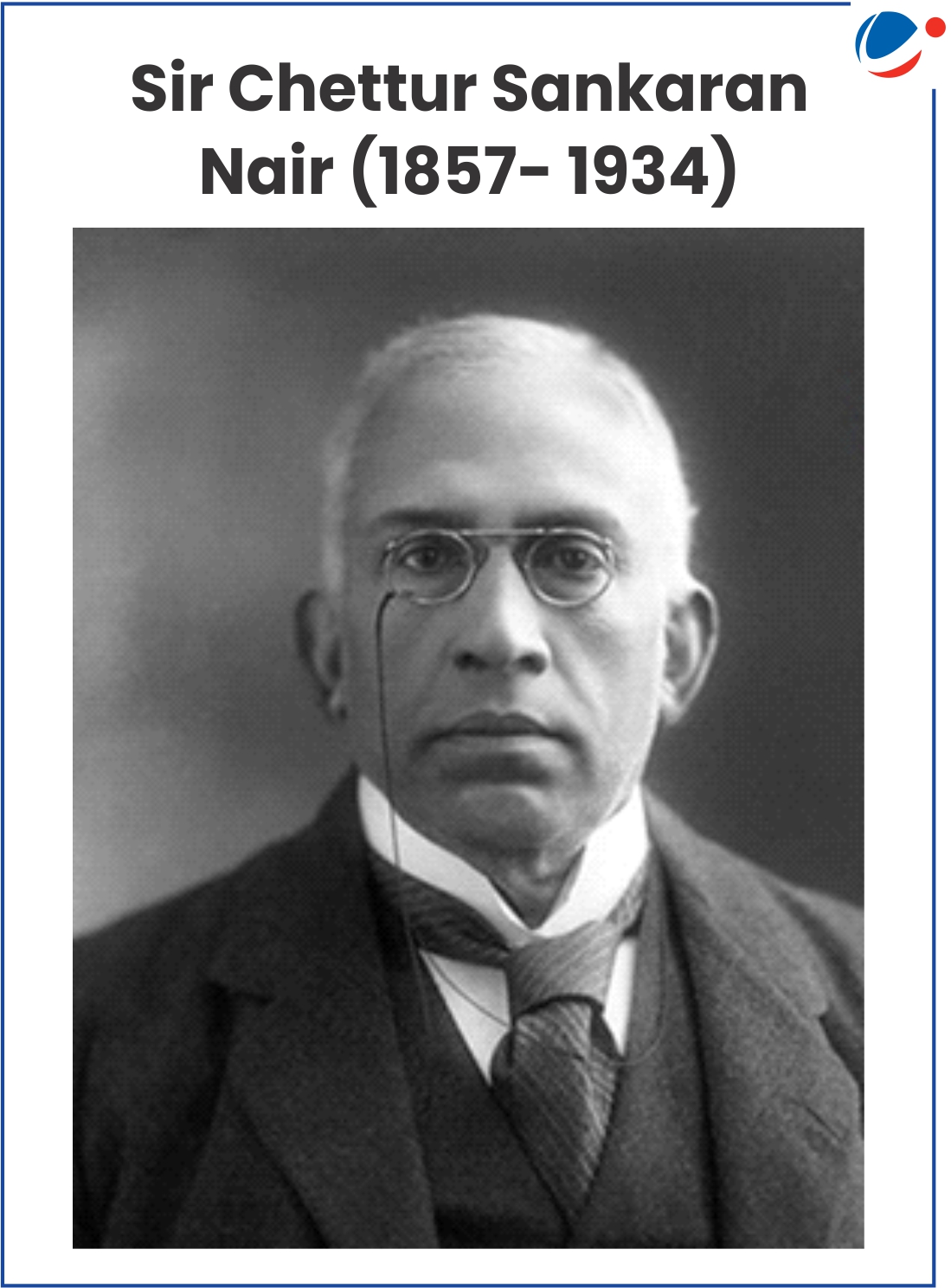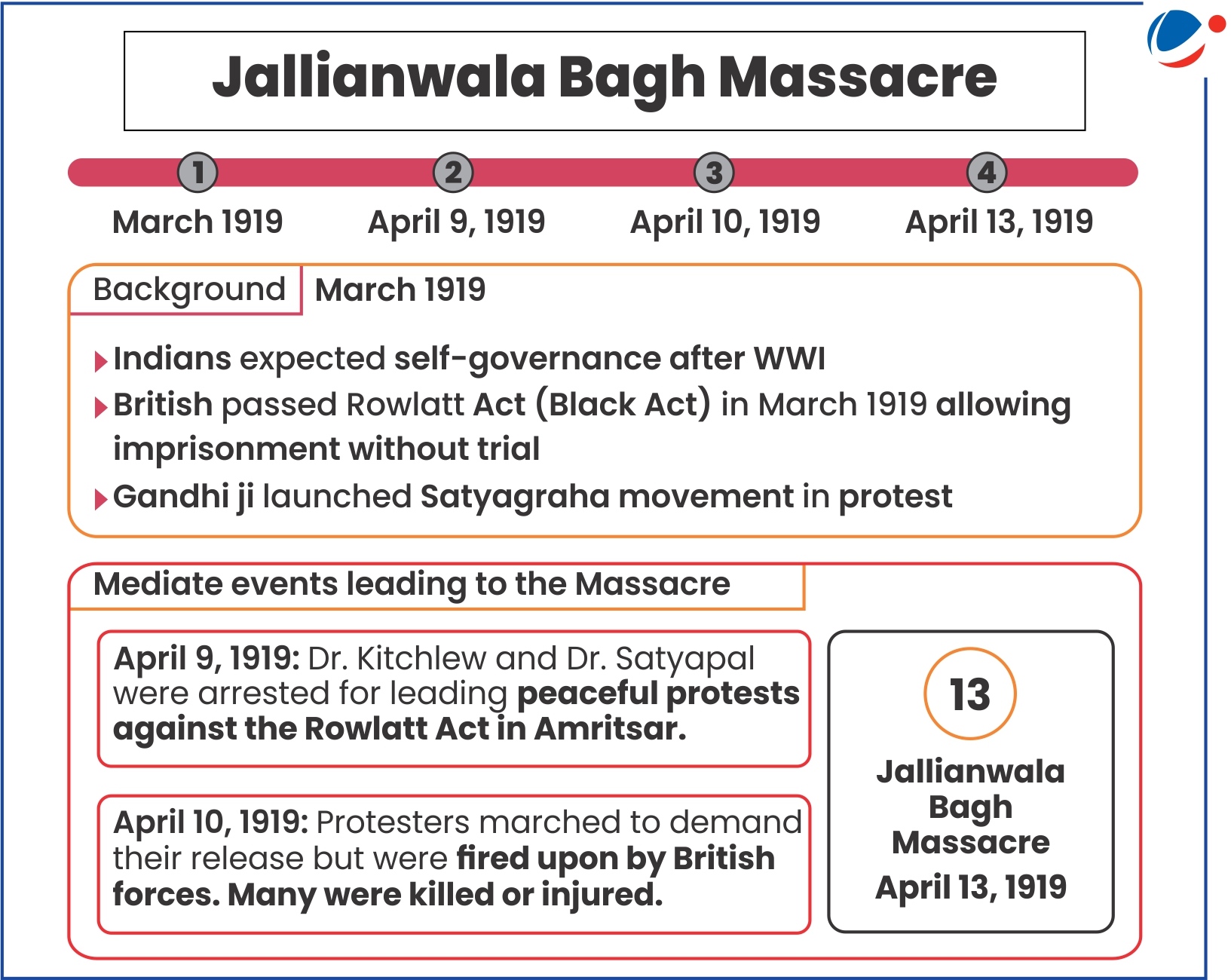
Introduction
Recently, Prime Minister hailed the distinguished Indian lawyer, judge, and statesman, Sir Chettur Sankaran Nair, who played a pivotal role in India's freedom struggle. He led a legal battle against the Britishers and particularly Michael O'Dwyer (lieutenant Governor of Punjab) for the Jallianwala Bagh massacre, 1919. Additionally, his courageous legal fight against Michael O'Dwyer is the focus of the recently released movie 'Keshari Chapter 2'.
Background and Early Life
- Birth: Born in 1857, in Palakkad, Kerala.
- Education: Studied Arts in Presidency College, Madras in 1877 and Law from the Madras Law College in 1879.
- Career
- Youngest President of the Indian National Congress (Amraoti, 1897).
- Member of the Madras Legislative Council (1900).
- Advocate-General to the Government (till 1908).
- Permanent Judge at Madras High Court (1908 -1915).
- Viceroy's Executive Council member (1915), holding Education portfolio.
- Councillor to the Secretary of State for India in London (1920–21).
- Indian Council of State member (from 1925).
- President of the Indian Central Committee for Simon Commission cooperation (1928).
- Accolades:
- Awarded the title 'Commander of the Indian Empire' by the King - Emperor in 1904.
- Received knighthood in 1912.
- Literary Contributions:
- Wrote two famous Minutes of Dissent in the Despatches on Indian Constitutional Reforms (1919);
- Gandhi and Anarchy (1922);
- Founded Madras Review and the Madras Law Journal.
- Death: 1934 in Madras.
Key Contributions
- Landmark Judgment: In Budasna V. Fatima (1914), he upheld conversion to Hinduism and ruled that such converts were not outcasts.
- Justice for Jallianwala Bagh: Took clear stand against Michael O'Dwyer for his role in 1919 massacre.
- Social Reforms: Advocated full equality, condemning inequality as racial inferiority and national abasement.
- National Vision: Supported Dominion Status for India in the first stage and regarded complete independence to be achieved in the second stage.
- Liberal and Moderate Politics: Criticized Gandhi's Civil Disobedience and Non-Cooperation Movements; supported peaceful constitutional reform and linguistic reorganization of states.
- Stood for Women's Rights: Participated in the 1920 Indian deputation to the Southborough Committee with Herabai Tata and Mithan Lam to put forward the case for female suffrage in India.
Key Values
- Courage: Quit the Viceroy's Executive Council in protest of the Jallianwala Bagh massacre.
- Righteousness: Refused to apologise after unfairly losing a defamation case in England to Michael O'Dwyer and stood by his principles.
- Patriotism: An ardent nationalist, who admired British democratic institutions yet exposed its harmful effects on the Indian economy.
- Commitment: Believed in India's right to self-government and resigned from active politics when the Viceroy Irwin announced Dominion Status as the ultimate goal for India
- Visionary: Supported inter-caste and inter-religious marriages long before they gained wider acceptance.
Conclusion
Sir Nair's legacy remains significant in reviving the ideals of justice, courage, dedication, and a firm resolve to favour the right fostering the spirit of sacrifice.
 About Jallianwala Bagh MassacreThe Massacre
Aftermath of the Massacre
|





